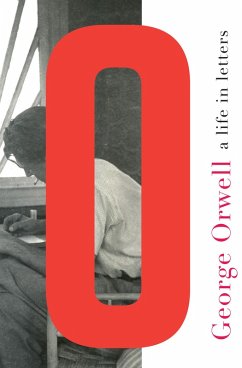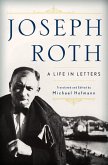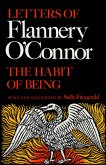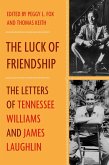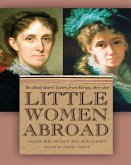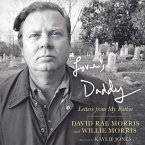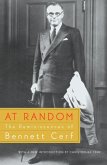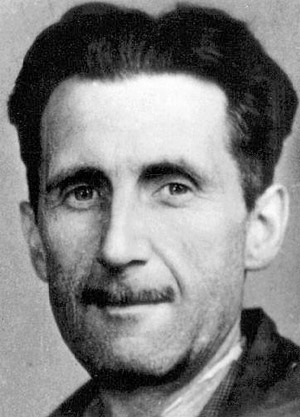Appearing for the first time in one volume, these trenchant letters tell the eloquent narrative of Orwell's life in his own words.
From his school days to his tragic early death, George Orwell, who never wrote an autobiography, chronicled the dramatic events of his turbulent life in a profusion of powerful letters. Indeed, one of the twentieth century's most revered icons was a lively, prolific correspondent who developed in rich, nuanced dispatches the ideas that would influence generations of writers and intellectuals. This historic worknever before published in America and featuring many previously unseen letterspresents an account of Orwell's interior life as personal and absorbing as readers may ever see.
Over the course of a lifetime, Orwell corresponded with hundreds of people, including many distinguished political and artistic figures. Witty, personal, and profound, the letters tell the story of Orwell's passionate first love that ended in devastation and explains how young Eric Arthur Blair chose the pseudonym "George Orwell." In missives to luminaries such as T. S. Eliot, Stephen Spender, Arthur Koestler, Cyril Connolly, and Henry Miller, he spells out his literary and philosophical beliefs. Readers will encounter Orwell's thoughts on matters both quotidian (poltergeists and the art of playing croquet) and historicalincluding his illuminating descriptions of war-shattered Barcelona and pronouncements on bayonets and the immanent cruelty of chaining German prisoners.
The letters also reveal the origins of his famous novels. To a fan he wrote, "I think, and have thought ever since the war began...that our cause is the better, but we have to keep on making it the better, which involves constant criticism." A paragraph before, he explained that the British intelligentsia in 1944 were "perfectly ready for dictatorial methods, secret police, systematic falsification of history," prefiguring the themes of 1984. Entrusting the manuscript of Animal Farm to Leonard Moore, his literary agent, Orwell describes it as "a sort of fairy story, really a fable with political meaning...This book is murder from the Communist point of view."
Hardly known outside a small circle of Orwell scholars, these rare letters include Orwell's message to Dwight Macdonald of 5 December 1946 explaining Animal Farm; his correspondence with his first translator, R. N. Raimbault (with English translations of the French originals); and the moving encomium written about Orwell by his BBC head of department after his service there. The volume concludes with a fearless account of the painful illness that took Orwell's life at age forty-seven. His last letter concerns his son and his estate and closes with the words, "Beyond that I can't make plans at present."
Meticulously edited and fully annotated by Peter Davison, the world's preeminent Orwell scholar, the volume presents Orwell in all his varieties and his relationships with those most close to him, especially his first wife, Eileen. Combined with rare photographs and hand-drawn illustrations, George Orwell: A Life in Letters offers "everything a reader new to Orwell needs to know...and a great deal that diehard fans will be enchanted to have" (New Statesmen).
From his school days to his tragic early death, George Orwell, who never wrote an autobiography, chronicled the dramatic events of his turbulent life in a profusion of powerful letters. Indeed, one of the twentieth century's most revered icons was a lively, prolific correspondent who developed in rich, nuanced dispatches the ideas that would influence generations of writers and intellectuals. This historic worknever before published in America and featuring many previously unseen letterspresents an account of Orwell's interior life as personal and absorbing as readers may ever see.
Over the course of a lifetime, Orwell corresponded with hundreds of people, including many distinguished political and artistic figures. Witty, personal, and profound, the letters tell the story of Orwell's passionate first love that ended in devastation and explains how young Eric Arthur Blair chose the pseudonym "George Orwell." In missives to luminaries such as T. S. Eliot, Stephen Spender, Arthur Koestler, Cyril Connolly, and Henry Miller, he spells out his literary and philosophical beliefs. Readers will encounter Orwell's thoughts on matters both quotidian (poltergeists and the art of playing croquet) and historicalincluding his illuminating descriptions of war-shattered Barcelona and pronouncements on bayonets and the immanent cruelty of chaining German prisoners.
The letters also reveal the origins of his famous novels. To a fan he wrote, "I think, and have thought ever since the war began...that our cause is the better, but we have to keep on making it the better, which involves constant criticism." A paragraph before, he explained that the British intelligentsia in 1944 were "perfectly ready for dictatorial methods, secret police, systematic falsification of history," prefiguring the themes of 1984. Entrusting the manuscript of Animal Farm to Leonard Moore, his literary agent, Orwell describes it as "a sort of fairy story, really a fable with political meaning...This book is murder from the Communist point of view."
Hardly known outside a small circle of Orwell scholars, these rare letters include Orwell's message to Dwight Macdonald of 5 December 1946 explaining Animal Farm; his correspondence with his first translator, R. N. Raimbault (with English translations of the French originals); and the moving encomium written about Orwell by his BBC head of department after his service there. The volume concludes with a fearless account of the painful illness that took Orwell's life at age forty-seven. His last letter concerns his son and his estate and closes with the words, "Beyond that I can't make plans at present."
Meticulously edited and fully annotated by Peter Davison, the world's preeminent Orwell scholar, the volume presents Orwell in all his varieties and his relationships with those most close to him, especially his first wife, Eileen. Combined with rare photographs and hand-drawn illustrations, George Orwell: A Life in Letters offers "everything a reader new to Orwell needs to know...and a great deal that diehard fans will be enchanted to have" (New Statesmen).
Dieser Download kann aus rechtlichen Gründen nur mit Rechnungsadresse in A, D ausgeliefert werden.

